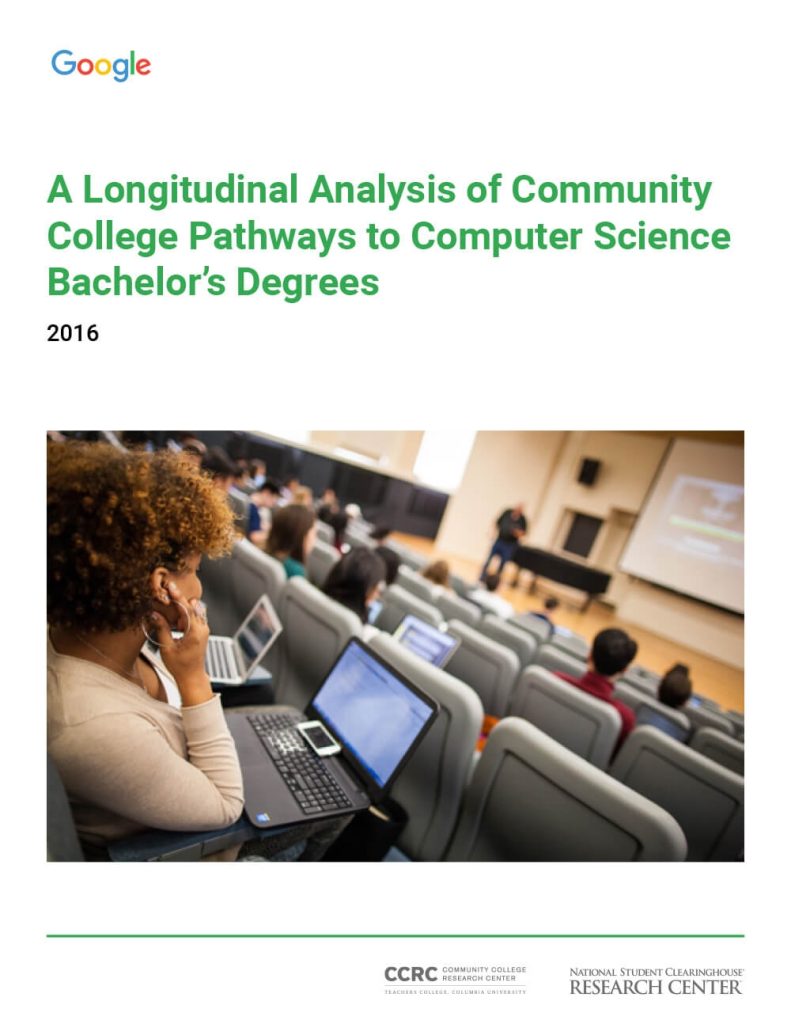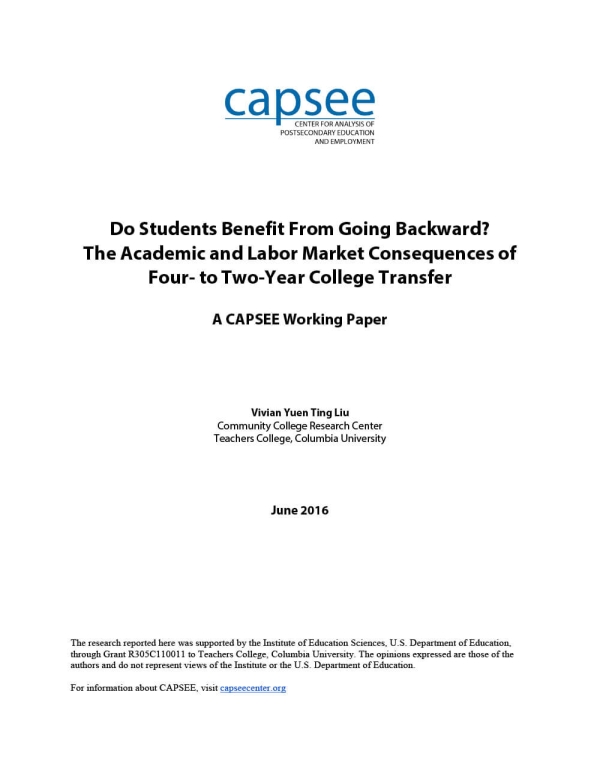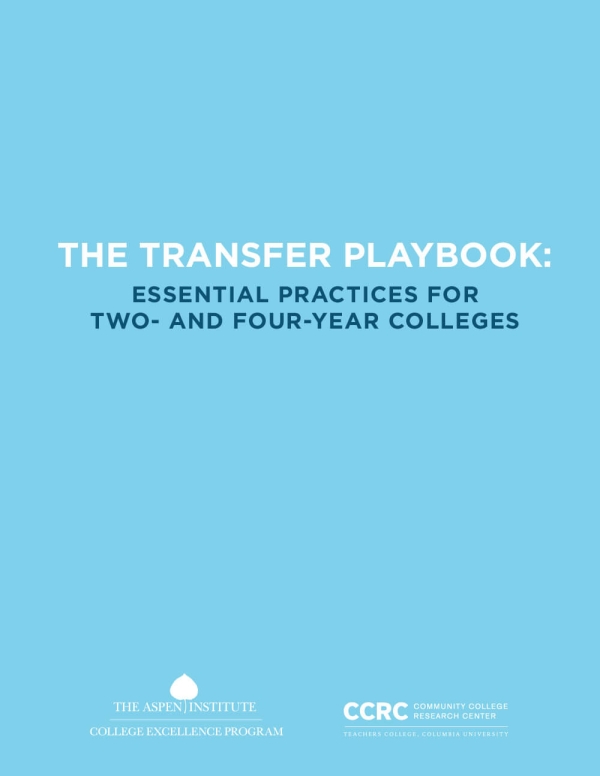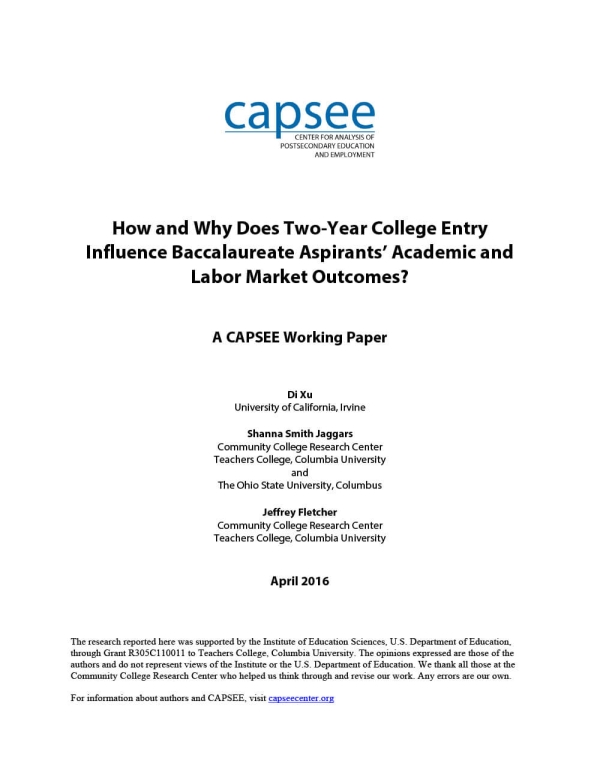Policy Levers to Strengthen Community College Transfer Student Success in Texas

Based on three sets of analyses, this report to the Greater Texas Foundation recommends ways that state policy could help to improve outcomes for community college transfer students in Texas.
A Longitudinal Analysis of Community College Pathways to Computer Science Bachelor’s Degrees

This report investigates the national landscape of computer science students at community colleges in order to better understand student behaviors and institutional characteristics that support or hinder community college students’ efforts to attain a computer science bachelor’s degree.
Do Students Benefit From Going Backward? The Academic and Labor Market Consequences of Four- to Two-Year College Transfer

This CAPSEE working paper examines the effects of four-year to two-year college transfer on “struggling” students, or those who earned less than a 3.0 grade point average in the first term.
The Transfer Playbook: Essential Practices for Two- and Four-Year Colleges

This playbook is a practical guide to designing and implementing a key set of practices that will help community colleges and their four-year college partners improve bachelor’s completion rates for students who start at community colleges.
How and Why Does Two-Year College Entry Influence Baccalaureate Aspirants’ Academic and Labor Market Outcomes?

Using detailed administrative data from Virginia, this CAPSEE working paper examines how and why the community college pathway to a baccalaureate influences students’ degree attainment and short-term labor market performance.
